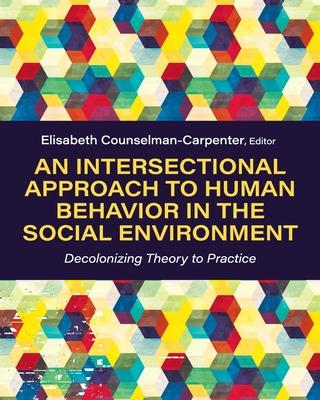An Intersectional Approach to Behavior in the Social Environment: Decolonizing Theory to Practice provides readers with a critical examination of human development through a decolonial, anti-oppressive, and trauma-informed framework. The book examines established human development theories from multiple marginalized perspectives, resulting in an inclusive approach to social work practice.
The book explores contextual factors affecting human development, including various identities and societal systems. It applies a decolonial lens to specific life stages, underscoring the impact of dominance, power, and intersectionality on personal and communal growth. The opening chapter reviews classical developmental theories including Erikson, Freud, Piaget, Kohlberg, Brofenbrenner, Homans, and attachment theory with a critical focus on the context in which these theories were developed along with strengths and critiques. This chapter also features three modern human development theories that include racial and ethnic identities and a more structural focus on human development.
In additional chapters, topics such as racial trauma, colorism, neurobiology, spirituality, economic justice, sexual and gender identity, and various developmental phases from prenatal to end-of-life are thoroughly addressed. Each chapter incorporates critical analyses, case studies, reflective and active learning components relevant to theoretical concepts and practical application.
Recommended for courses related to social work, psychology, and educational studies, An Intersectional Approach to Behavior in the Social Environment helps readers develop a comprehensive and socially just perspective on human development.
